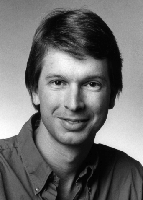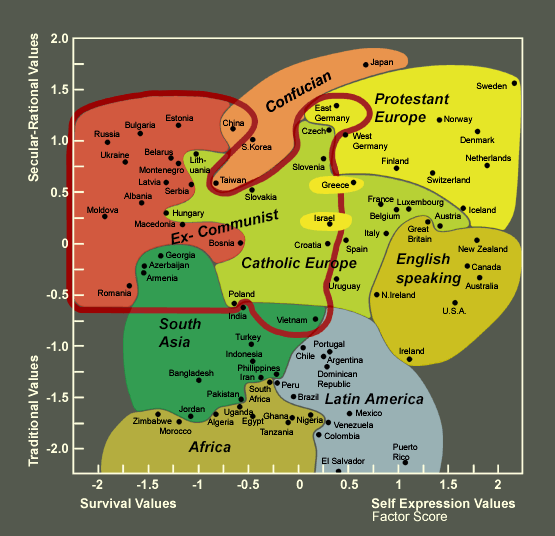In a recent blog entry, Hokai Sobol maps the steps of Dogen’s famous syllogism:
To study the Way is to study the self.
To study the self is to forget the self.
To forget the self is to be enlightened by all things.
To be enlightened by all things is to remove the barriers between one’s self and others.
to the stages of the Buddhist tradition.
Interesting. But we must tread carefully when dealing with poor English translations of Dogen.
The word translated as “study” is “narau”, which, like many Japanese words, has a broader sweep of meaning than its counterparts in a Western language. Some of its nuances, in addition to “study”, include “learn” and “follow” and “master”, with a hint of “by imitating someone”. Here I’ll go with “follow”.
Next, the Japanese that was rendered as “To xxx is to yyy” in the translation above is “xxx to iu wa, yy nari”. Although subject to interpretation, the “to iu wa” part has the flavor of a definition—that the first part is a verbal construction, whose real content is given by the second part. The syntax here does not really support that Dogen is describing temporal stages of development. It seems that he’s really trying to correct misconceptions people have about, or amplify on, what xxx really is. I therefore prefer the construction “xxx’ing really means yyy’ing.” But that’s just one of a dozen ways to express this.
Then, we have the word “self”, a translation of the Japanese “jiko”. Many translators automatically translate this as “the self”, but I prefer the friendlier “yourself”. Beware, though, that Dogen often also uses this term in subject/object dichotomies.
Moving ahead, we have “enlightened by all things”, for which the Japanese is “manpou ni shou-seraruru”. “Manpou” is indeed often translated as “all things”, and you should consult a Buddhist dictionary for its myriad nuances, but the word which evokes the same nuance in modern English speakers is “reality”. As for “shou-seraruru”, this “shou” is indeed commonly used for enlightenment, but also “prove”, “validate”, “establish”. Personally, I don’t know what it means to “be enlightened by something”; do you? It could be “hear the testimony of reality”, but I’ve chosen the simple “trust reality”.
The “remove barriers between one’s self and others” part is most tricky of all. As currently translated, it sounds like some kind of international friendship program. The Japanese here is “jiko no shinjin oyobi tako no shinjin wo shite, totsuraku seshimuru nari”. Note that the English translation has also completely omitted the “shinjin”, lit. “body and mind”, which follows both “jiko” (your own self) and “tako” (the self of others), and is at the heart of what Dogen is saying here!
The “oyobi” connecting “jiko…” and “tako…” is clearly an emphatic “and”, and cannot possibly mean “between”.
“Totsuraku” is the famous “cast off” or “fall away”, so most translators would immediately render this as “cast away body and mind of your own self and that of others”, but that has many problems, not least of which is that it doesn’t mean anything. Dogen teaches that there is not distinction between body and mind, so how could he be telling us to cast them off? What does it mean to cast off your body anyway? My reading is that he is telling us to cast away that distinction. In other words, “shinjin” is not “body and mind”, but “body vs. mind”.
Overall, then, I’d translate this famous paragraph as:
Following the Buddha Way really means following yourself.
Following yourself really means forgetting yourself.
Forgetting yourself really means trusting reality.
And trusting reality really means not setting your body against your mind, nor the bodies of others against their minds.
 Your eyes are always moving, in quick, sharp, jumps, several times a second. These movements are called saccades. You need to make these visual jumps since you can only see well right at the center of our eyes (“fovea”). Saccades can be exploratory, or confirmatory in nature. Even babies make saccades (more slowly, though).
Your eyes are always moving, in quick, sharp, jumps, several times a second. These movements are called saccades. You need to make these visual jumps since you can only see well right at the center of our eyes (“fovea”). Saccades can be exploratory, or confirmatory in nature. Even babies make saccades (more slowly, though).
 I am pleased to announce that the
I am pleased to announce that the  The late Pope John Paul II, while clearly
The late Pope John Paul II, while clearly 
 Shinjin datsuraku (身心脱è?½) is Dogen’s trademark phrase. It’s said to be a phrase his teacher Nyojo was fond of; some say it’s the phrase which Dogen became enlightened upon hearing. It is found throughout both Shobogenzo and other writings by Dogen. English translations invariably render this as casting off body and mind. Reading these translations you can almost hear the translators saying to themselves, great, there’s something I don’t have to think about how to translate, and the readers saying to themselves, my, what a very Zen-like thing for Dogen to say. But this translation is not just wrong, it’s harmful. I’m just imagining all the poor Zen students sitting there on their cushions trying to figure out how to cast off their bodies and minds like the book says!
Shinjin datsuraku (身心脱è?½) is Dogen’s trademark phrase. It’s said to be a phrase his teacher Nyojo was fond of; some say it’s the phrase which Dogen became enlightened upon hearing. It is found throughout both Shobogenzo and other writings by Dogen. English translations invariably render this as casting off body and mind. Reading these translations you can almost hear the translators saying to themselves, great, there’s something I don’t have to think about how to translate, and the readers saying to themselves, my, what a very Zen-like thing for Dogen to say. But this translation is not just wrong, it’s harmful. I’m just imagining all the poor Zen students sitting there on their cushions trying to figure out how to cast off their bodies and minds like the book says!
 I shall have more to say about Jeff Hawkins’ book
I shall have more to say about Jeff Hawkins’ book